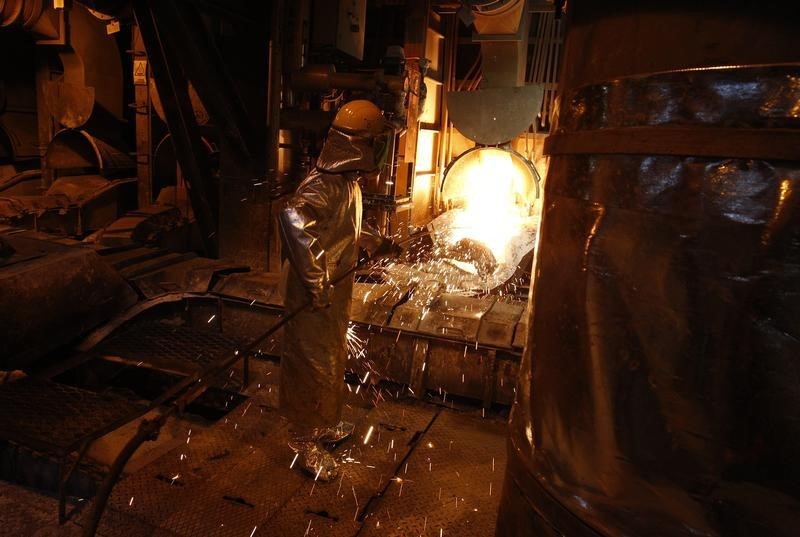Investing.com - Copper prices plunged to the lowest level in six years on Wednesday, as steep declines on Chinese stock markets dampened appetite for the red metal.
Copper for September delivery on the Comex division of the New York Mercantile Exchange hit an intraday low of $2.384 a pound, a level not seen since July 2009, before trading at $2.411 during European morning hours, down 3.6 cents, or 1.47%.
A day earlier, copper tumbled 9.1 cents, or 3.61%, to close at $2.446 as concerns over Greece's debt crisis and mounting losses on Chinese stock markets weighed.
Shares in China plunged further on Wednesday despite fresh efforts by the government to calm the market.
The Shanghai Composite tumbled nearly 6% in volatile trade on Wednesday after having fallen as much as 8% shortly after the open with trading in more than 500 companies listed in Shenzhen and Shanghai suspended. The index is down almost 37% over the past four weeks.
The People's Bank of China said it was watching market movements and would act to eliminate systemic and regional risks as a result of selling.
The China Insurance Regulatory Commission said ahead of the open it would increase the limit on how much insurance companies can spend buying blue-chip stocks to as much as 40% of total assets from 30%.
Market players are concerned that the plunge in the stock market could spread to other parts of the Chinese economy, triggering fears that the Asian nation's demand for the industrial metal will decline.
China is the world’s largest copper consumer, accounting for almost 40% of world consumption last year.
Elsewhere, gold futures for August delivery slumped $5.00, or 0.43%, to trade at $1,147.60 a troy ounce, the weakest level since March, while silver futures for September delivery dropped 19.1 cents, or 1.28% to trade at a seven-month low of $14.77 an ounce .
Investors continued to monitor developments surrounding the ongoing Greek debt crisis. Athens has a five-day deadline to submit a detailed package of reforms to international creditors in return for a bailout or risk the "bankruptcy" of both the country and its financial system, European Council President Donald Tusk and Commission President Jean-Claude Juncker warned Tuesday.
Uncertainty over Greece has so far failed to spur increased investor demand for gold, often perceived as a safe-haven asset.
Instead investors have flocked to the U.S. dollar, which hit a five-week high against a trade-weighted basket of six major currencies, on Tuesday. A stronger greenback is usually a negative for raw materials as it makes the commodities more expensive for users of other currencies.
